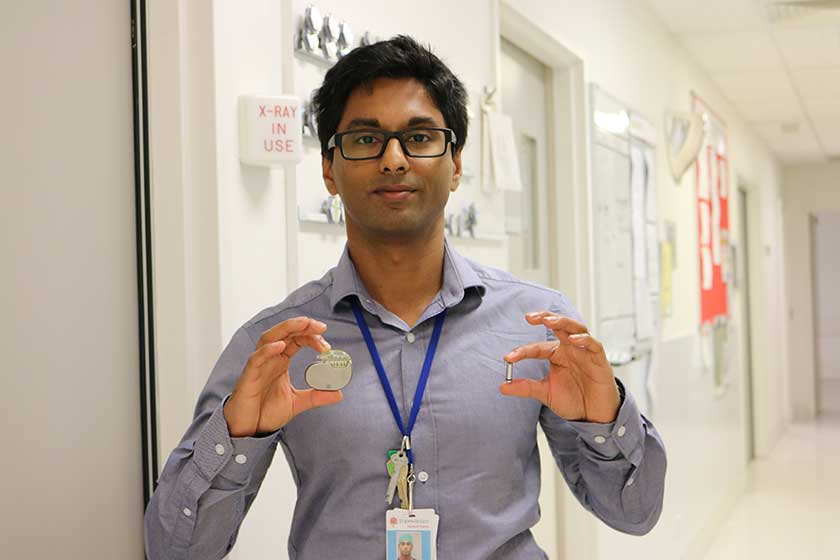Tiny pacemaker offers latest in technology
A pacemaker no bigger than a vitamin or heavier than a small coin is having an enormous impact on how cardiologists at St John of God Murdoch Hospital treat their patients with bradycardia, or a slow heartbeat.
14 Feb 2018

The leadless Micra® Transcatheter Pacing System (TPS), ten times smaller than regular pacemakers, is implanted via catheter and doesn’t require the use of wires as it is attached directly to the inside wall of the heart via small tines. There are no visible signs of the device.
The treatment of bradycardia with permanent pacemakers has been the standard of care since the 1960s, when the first implantable pacemakers were developed for medical use.
Cardiologist Pradyot Saklani from Heartcare WA says since then there have been numerous changes which have increased battery longevity, reduced generator size, improved lead reliability, enhanced computing and algorithmic function and permitted remote device monitoring.
“Although pacemaker related issues are rare, complications related to the leads or the surgical pocket made under the skin for implantation have remained the greatest source of short and long-term morbidity,” Dr Saklani says.
“The Micra is a revolutionary technology which does away with the conventional pacemaker’s weakest components.
“Advances in battery technology and component design in particular have permitted miniaturisation of the pacemaker.”
The Micra has an average battery longevity of 12 years, is MRI conditional and can be monitored remotely. It is suitable for patients who require a single chamber pacemaker, have vascular access issues or a reason to avoid the conventional approach. It does, however, not replace more complex multi-lead pacemakers or defibrillators.
The Hospital’s Director Medical Services Alison Parr says the team is very excited to be able to offer patients such a minimally invasive approach in cardiology.
“Patients can expect the procedure to take less than an hour under local anaesthetic and to then return home the next day,” Dr Parr says.
“We are receiving excellent feedback from patients who have had the Micra implanted and are eagerly awaiting longer term results.”
The Micra, and all other device implantations performed by GenesisCare cardiologists are logged and patient outcomes tracked in an industry leading national device registry. Information from this registry helps to improve patient care and outcomes.
You may be interested in

